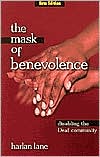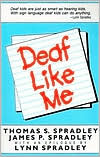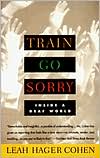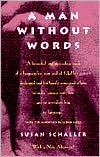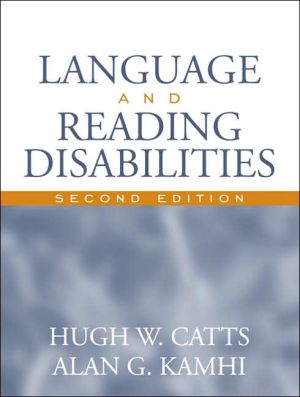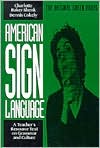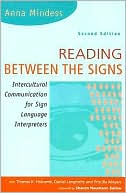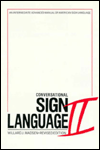Mask of Benevolence: Disabling the Deaf Community
A look at the gulf that separates the deaf minority from the hearing world, this book sheds light on the mistreatment of the deaf community by a hearing establishment that resists understanding and awareness. Critically acclaimed as a breakthrough when it was first published in 1992, this new edition includes information on the science and ethics of childhood cochlear implants. An indictment of the ways in which experts in the scientific, medical, and educational establishment purport to...
Search in google:
A look at the gulf that separates the deaf minority from the hearing world, this book sheds light on the mistreatment of the deaf community by a hearing establishment that resists understanding and awareness. Critically acclaimed as a breakthrough when it was first published in 1992, this new edition includes information on the science and ethics of childhood cochlear implants. An indictment of the ways in which experts in the scientific, medical, and educational establishment purport to serve the deaf, this book describes how they, in fact, do them great harm. Publishers Weekly ``Audism'' is the term that Northeastern University psychology professor Lane, who is not deaf, uses in this forceful indictment of what he calls ``the hearing establishment,'' which he portrays as a colonial power overseeing the needs of deaf subjects. Hearing ``experts'' (at least the ones who can hear) demean deaf people, who, he writes, view themselves as an ethnic group, and who tend to marry among themselves. A deaf mother recalls her response upon learning that her newborn was deaf: ``I wasn't disappointed. I thought, it will be all right. We are both deaf so we will know what to do.'' Lane derides the financial motivation of those who urge upon deaf patients cochlear implants, a procedure with mixed results based on a painful, complicated bone-drilling process. Those who are deaf, he observes, are not handicapped; they have heightened visual powers. His book is an eye-opener. (May)
A look at the gulf that separates the deaf minority from the hearing world, this book sheds light on the mistreatment of the deaf community by a hearing establishment that resists understanding and awareness. Critically acclaimed as a breakthrough when it was first published in 1992, this new edition includes information on the science and ethics of childhood cochlear implants. An indictment of the ways in which experts in the scientific, medical, and educational establishment purport to serve the deaf, Mask of Benevolence describes how they, in fact, do them great harm.
PrefaceAcknowledgmentsPt. 1Representations of Deaf People: The Infirmity and Cultural ModelsA Different Center3Hearing Representations of Deaf People6The Infirmity and Cultural Models of Deaf People13Pt. 2Representations of Deaf People: Colonialism, "Audism," and the "Psychology of the Deaf"The Colonization of African and Deaf Communities31The Paternalism Indictment39Audist "Psychology of the Deaf"50Pt. 3Representations of Deaf People: Power, Politics, and the Dependency DuetRepresentation and Power69The Role of the Oppressed88Pt. 4Language Bigotry and Deaf CommunitiesThe Oppression of American Sign Language103Language in Another Mode120Pt. 5The Education of Deaf Children: Drowning in the Mainstream and the SidestreamThe Failure of Deaf Education129Deaf People Without a Deaf Community143The Parents' Ordeal154Pt. 6Bilingual Education and Deaf PowerFor Progress, a Return to Deaf-Centered Education165The Politics of Deaf Education185After the Revolution191Pt. 7Bio-Power Versus the Deaf ChildOralism's Ultimate Recourse203Heroic Treatments in Historical Perspective212The Risks and Limitations of Childhood Cochlear Implants216What the FDA Did Wrong230Notes239Index297
\ Publishers Weekly - Publisher's Weekly\ ``Audism'' is the term that Northeastern University psychology professor Lane, who is not deaf, uses in this forceful indictment of what he calls ``the hearing establishment,'' which he portrays as a colonial power overseeing the needs of deaf subjects. Hearing ``experts'' (at least the ones who can hear) demean deaf people, who, he writes, view themselves as an ethnic group, and who tend to marry among themselves. A deaf mother recalls her response upon learning that her newborn was deaf: ``I wasn't disappointed. I thought, it will be all right. We are both deaf so we will know what to do.'' Lane derides the financial motivation of those who urge upon deaf patients cochlear implants, a procedure with mixed results based on a painful, complicated bone-drilling process. Those who are deaf, he observes, are not handicapped; they have heightened visual powers. His book is an eye-opener. (May)\ \ \ \ \ Library JournalWritten to stir both action and feeling, The Mask of Benevolence is thought-provoking in all areas of deaf studies. In particular, Lane focuses on the differences between the deaf as disabled and the deaf as a linguistic minority. He argues for a more coherent and compassionate society, one in which the deaf choose what is best for them--in areas such as education, politics, philosophy, and language. Specifically, Lane's research is about people who grow up deaf, acculturated to the manual language and the society of the deaf community. He writes again, as he did in his When the Mind Hears ( LJ 10/15/84), of the historical perspective and positive conceptualization of deaf individuals. Lane is thorough, detailed, and intensive in relating the deaf world to the hearing, and he backs up his opinions with facts, research, and vivid detail. As there are no other current titles that so eloquently clarify the differences between the deaf and hearing worlds, Lane's book is highly recommended for all collections.-- Emily Ferren, Carroll Cty. P.L., Westminster, Md.\ \ \ Kirkus ReviewsLane (Psychology/Northeastern) follows up When the Mind Hears—his 1984 history of the deaf—with an excoriating analysis of the oppression of the deaf in contemporary society. Hearing people, Lane says, view deafness as a disability—but the deaf see themselves as a linguistic minority, feel that they have a richer social life than hearing people, marry each other, and celebrate the birth of a deaf child as a precious gift. After developing these preconception-shattering revelations, Lane reveals the meshes of paternalistic control exercised by "audism"—that institution of school administrators, speech therapists, psychologists, and social workers that authorizes views of the deaf, governs where they go to school, and exercises authority over their community. Despite research showing that American Sign Language is a natural language with its own vocabulary, grammar, and art forms, professionals persist in viewing it as disabled English and refuse to learn it. The consequences for the deaf are dire: IQ scores can be lowered 30 points by examiners resorting to ad hoc pantomime for test instruction; psychologists administer tests designed for the hearing and misdiagnose deaf children as learning-disabled; deaf youth are "mainstreamed" out of special schools to languish in a hearing, English-speaking environment. The audist establishment, Lane says, has promulgated calling deaf children "hearing-impaired"—the equivalent, he adds, of calling women "non-men" or gays "sexually impaired." And economic self- interest motivates the audist establishment, Lane argues. The hearing-aid industry, for example, annually sells $250 million dollars' worth of hearing aids to deafchildren, whose teachers require them. Yet virtually all of these children went deaf before learning English, making the hearing aids useless. What is to be done to empower the deaf? Allow them their language, Lane says, and their history and their dignity. Essential for anyone with a deaf person in his or her life, or for anyone who wishes truly to understand two million deaf fellow Americans.\ \
